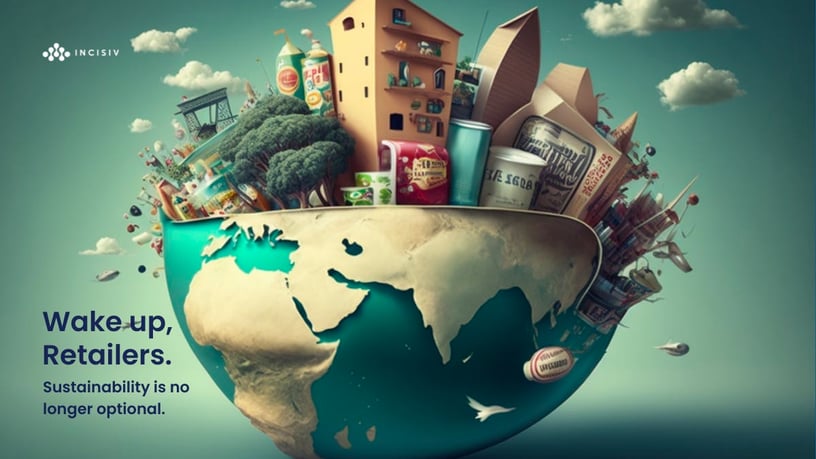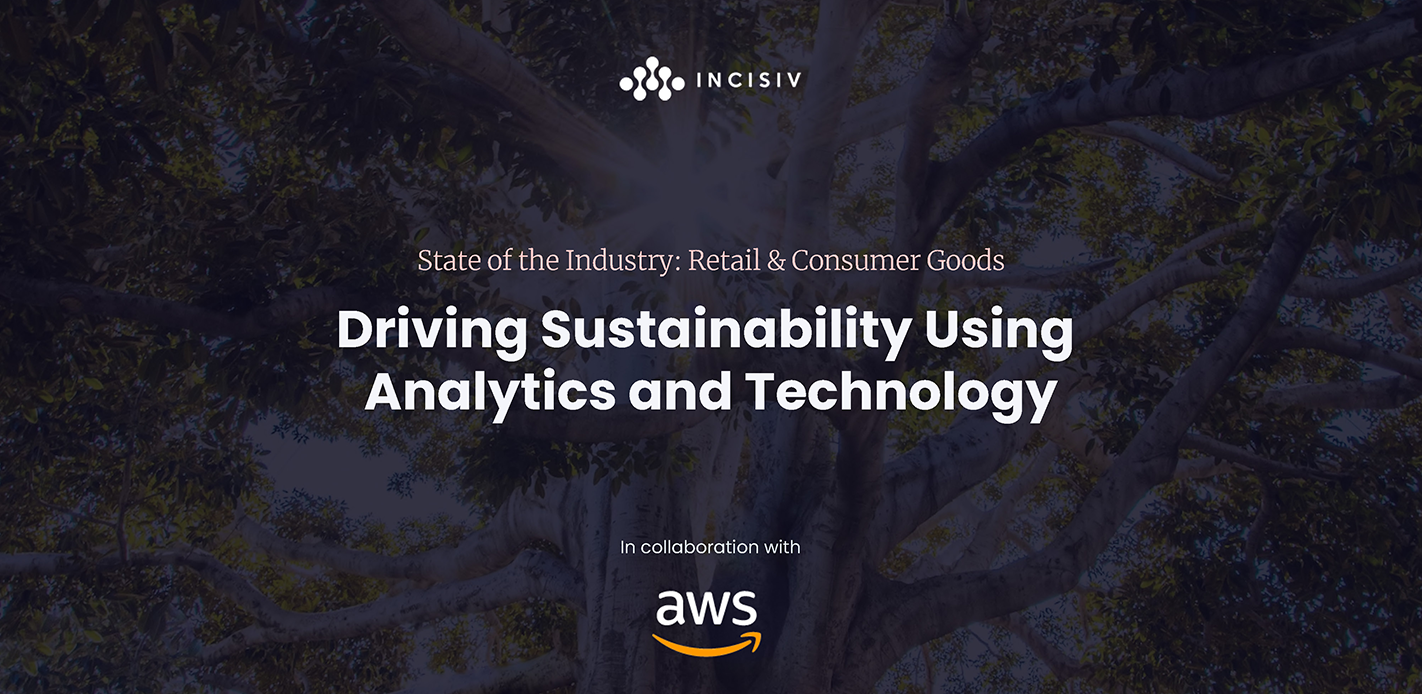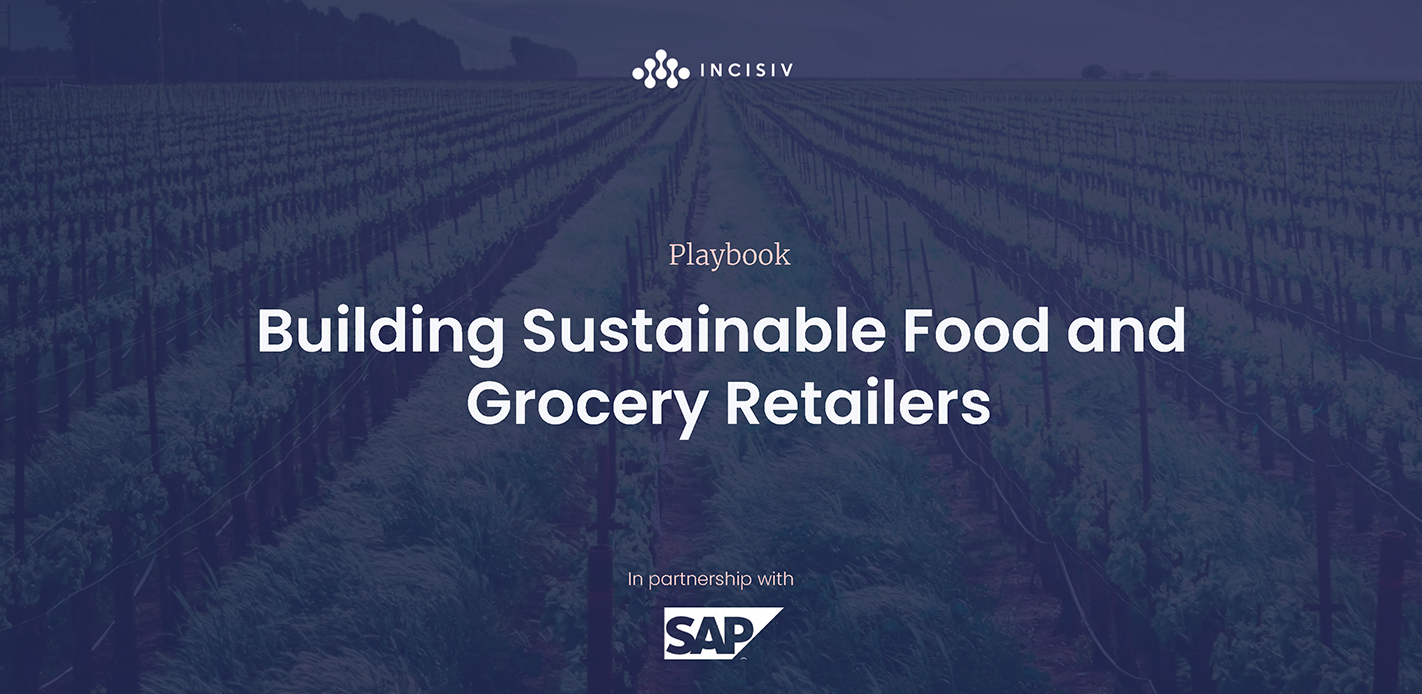This article discusses why companies must integrate sustainability into their business strategy and the critical impact vectors they must consider to build a business case for a more holistic approach to sustainability.

The retail industry is at a crossroads, and it's time for retailers and consumer brands to wake up to the fact that sustainability is no longer a "nice-to-have" but a critical aspect of doing business in the 21st century. With consumers becoming increasingly environmentally conscious, the industry must adapt or risk falling behind the competition.
- According to simulated scenarios, package returns represent about one-fourth of the total e-commerce emissions.
- Overall, supply chain transparency is poor, with only 15% of Chief Product Officers having visibility beyond the suppliers closest to their manufacturing processes (tier 1 suppliers).
These industry-level statistics highlight the need for retail and consumer packaged goods (CPG) companies to reevaluate their approach to sustainability, going beyond just reducing their carbon footprint.
In this blog, we'll explore four reasons why sustainability will be a fundamental pillar of future business strategies and why companies that don't embrace it will struggle to survive.

- Attracting and Retaining Employees: 70% of Millennials and Generation Z prefer to work for organizations that have a strong sustainability agenda, making sustainability a critical factor in attracting and retaining employees.
- Cost Savings: Implementing more sustainable practices, such as LED lighting solutions, can result in significant cost savings for companies, such as the $2.4 million savings Albertsons will achieve over the next ten years.
- Differentiation: Companies that embrace sustainability can differentiate themselves from competitors in the market and set themselves apart. For example, Everlane adopted a unique supply chain and pricing strategy by transparently detailing the entire production costs of products, including labor and materials, to shoppers.
- Reputation and Brand Image: Companies with strong sustainability practices will likely have a better reputation and brand image with consumers, who are becoming increasingly concerned with the impact of their purchases. This is evident in the announcement by Giant Eagle to eliminate all single-use plastics by 2025.
Companies that do not prioritize sustainability in their business practices will face increasing difficulties in attracting customers and employees. With a growing global focus on environmental, social, and governance (ESG) issues and the introduction of ESG regulations in major markets such as Europe, the importance of sustainability in the retail industry will only continue to rise.
Retail companies, especially those operating in the US, must take notice and consider how they can proactively meet the rising demand for eco-friendly products and practices to remain competitive and mitigate the potential financial and reputational risks associated with non-compliance with ESG regulations.
The advantages of embracing sustainability for companies:
Companies that embrace sustainability can reap several benefits, including cost savings, differentiation, improved reputation and brand image, and the ability to attract and retain employees.
Companies must consider the economic, environmental, and emotional impact vectors when building a business case for a more holistic approach to sustainability.
Economic
The economic impact vector signifies the powerful financial ramifications that sustainability practices can have on a company. Companies can reap significant monetary benefits in the long run by embracing more sustainable methods, such as utilizing reusable packaging to minimize waste. A staggering 65% of US shoppers are eager to pay a premium for sustainable goods and services, emphasizing sustainability's growing demand and importance in the business world.
Environmental
The environmental impact vector refers to the effects a company's actions and processes have on the environment. By implementing more sustainable practices, such as transitioning to renewable energy sources, companies can significantly reduce their carbon footprint and play a crucial role in preserving the environment. Unfortunately, the apparel industry releases a staggering half a million tons of microfibers into the ocean each year, highlighting the urgent need for increased sustainable business practices.
Emotional
The emotional impact vector refers to a company's practices' influence on consumers and employees. By incorporating sustainable practices and offering eco-friendly products, companies can evoke positive emotions in their consumers and employees. Research indicates that over 50% of shoppers feel a stronger connection and loyalty to brands that understand and align with their priorities and preferences.
Retailers must prioritize sustainability to remain competitive and meet the rising demand for eco-friendly products and practices. By embracing sustainability, retailers can reap benefits such as cost savings, differentiation, improved reputation, brand image, and the ability to attract and retain employees. The time to act is now and take a holistic approach to sustainability for a sustainable future for their business and the planet.
More on Sustainability:

State of the Industry: Retail & Consumer Goods Driving Sustainability Using
This industry insight analyzes the role that technology and analytics play in driving sustainability initiatives across the retail & CPG industry.

Building Sustainable Food and Grocery Retailers
This playbook offers a structured perspective on how food and grocery retailers can embrace and implement a holistic sustainability strategy.





